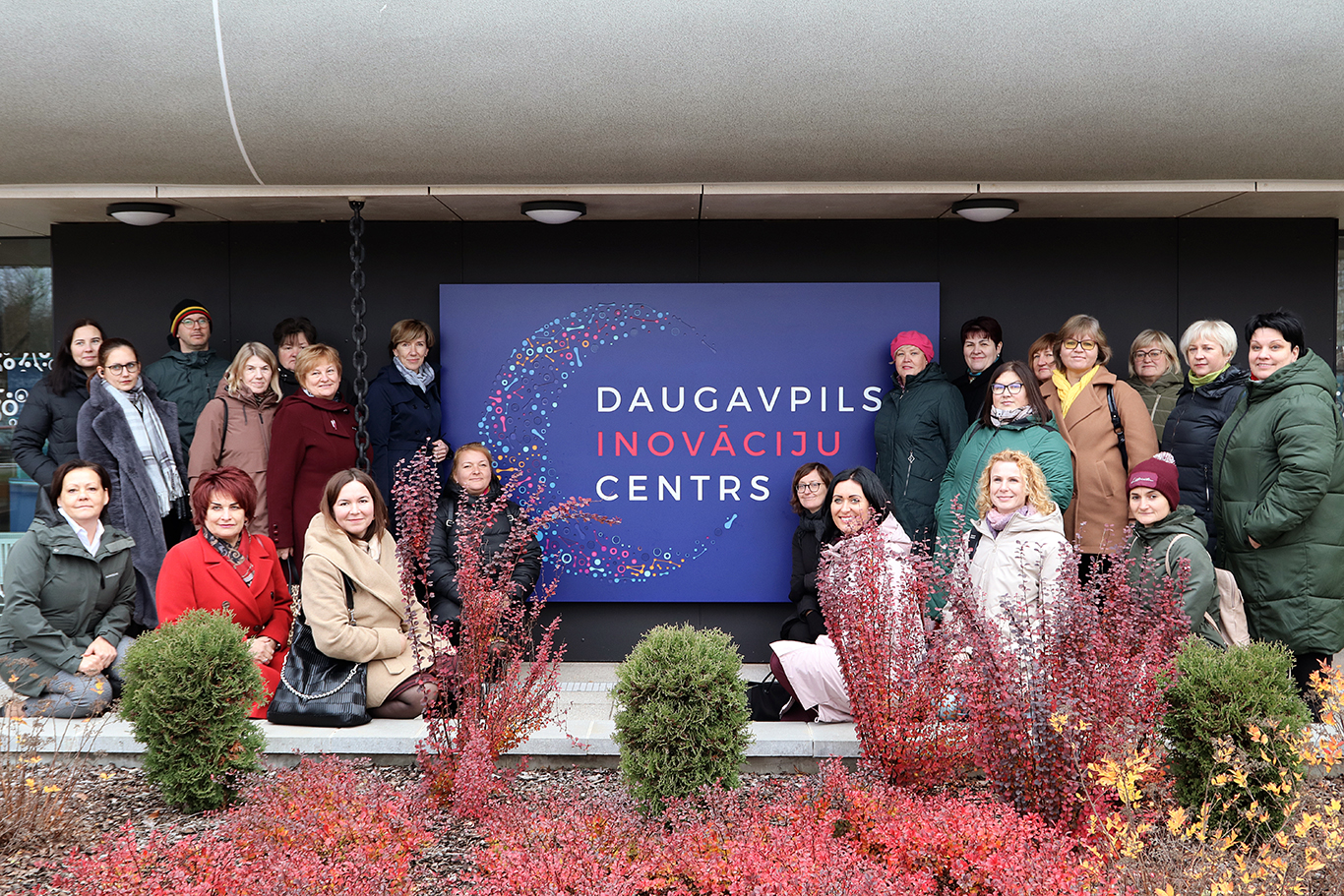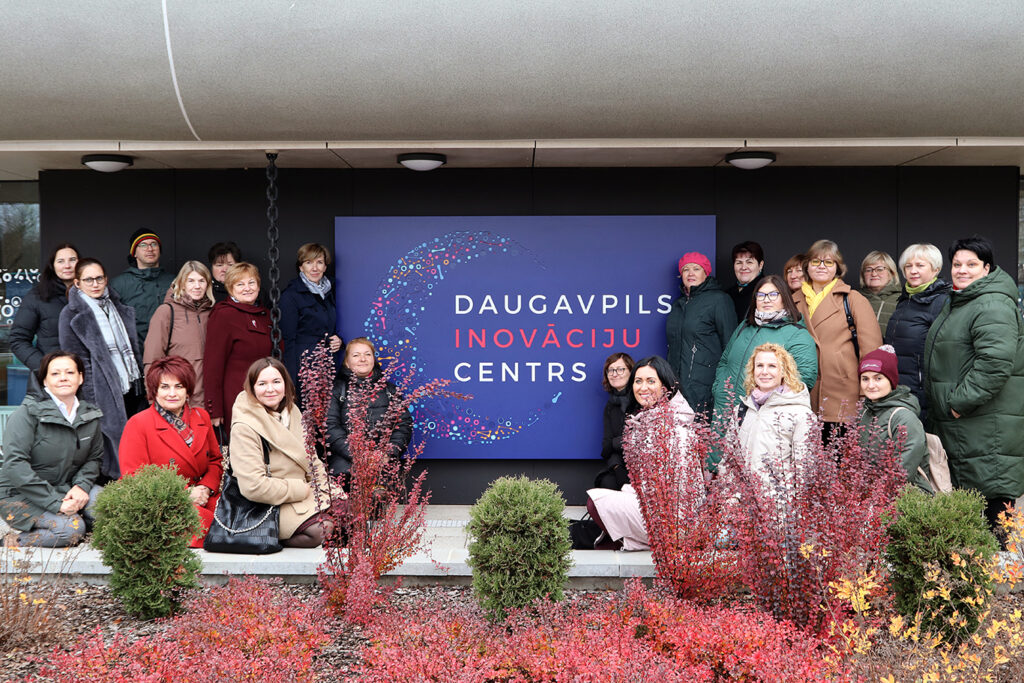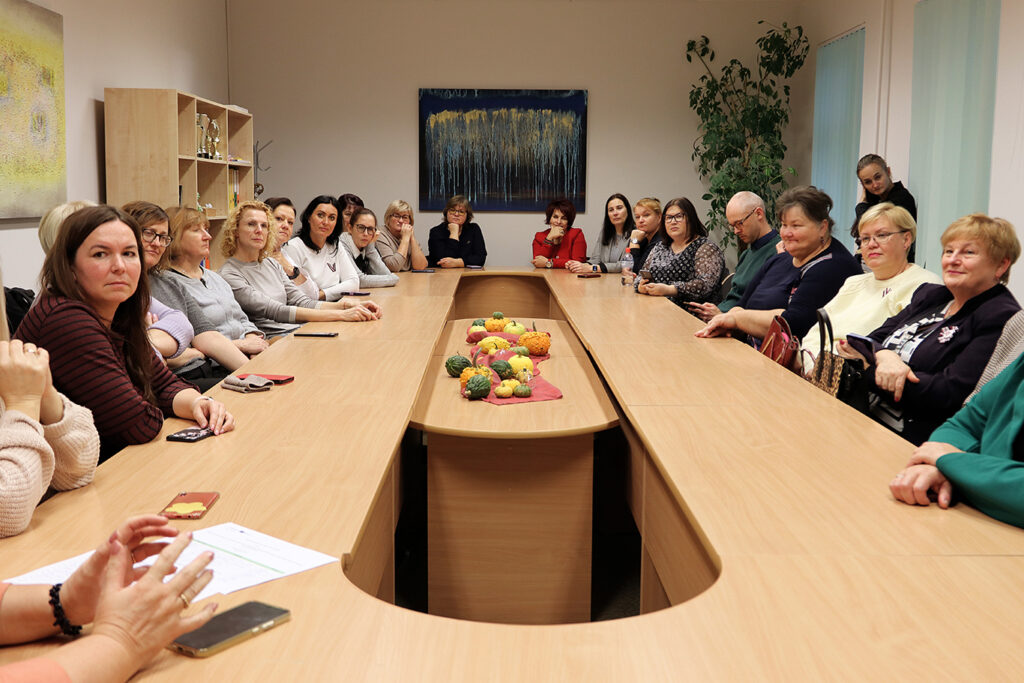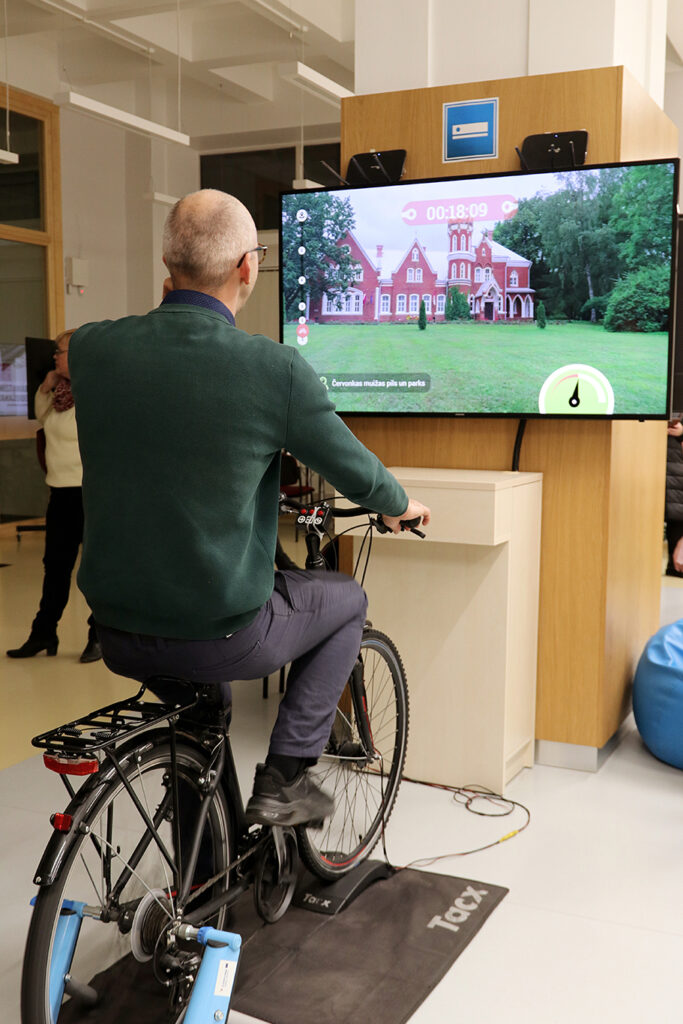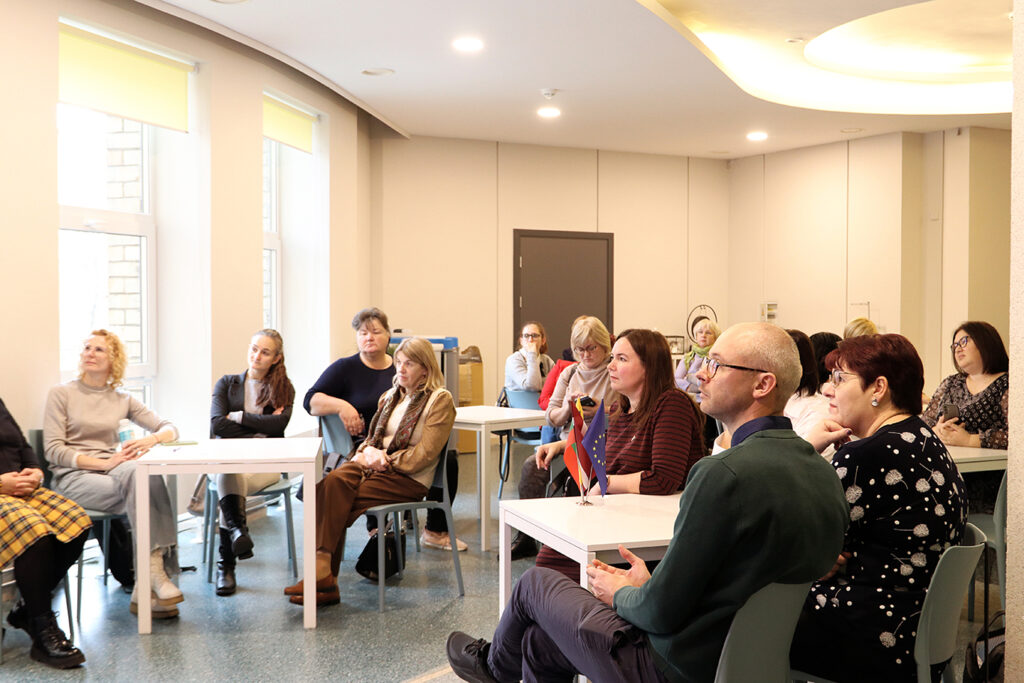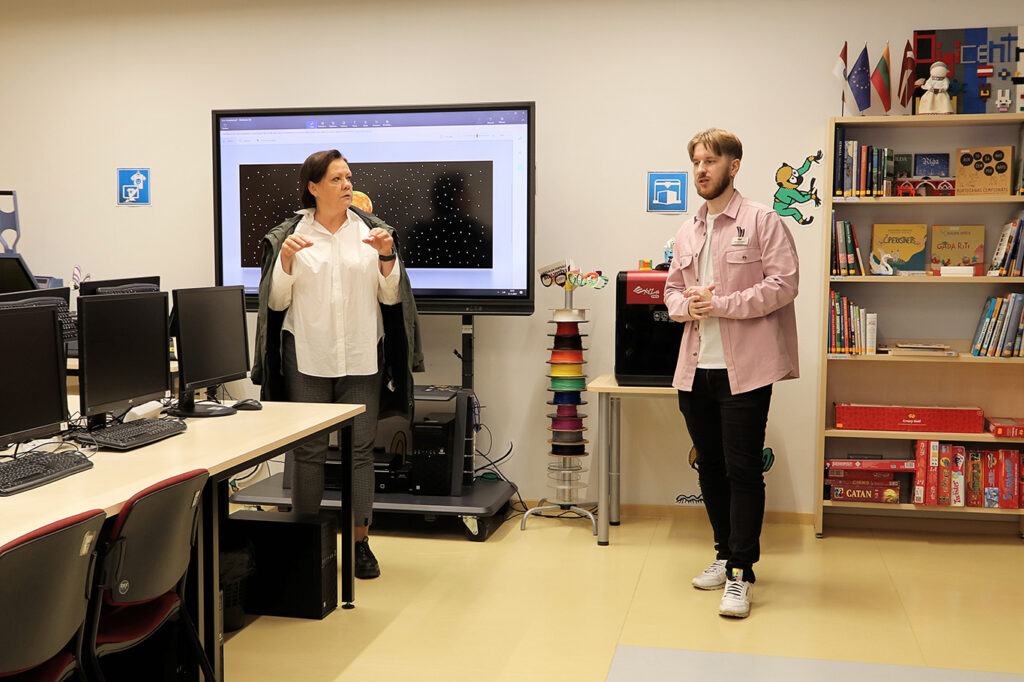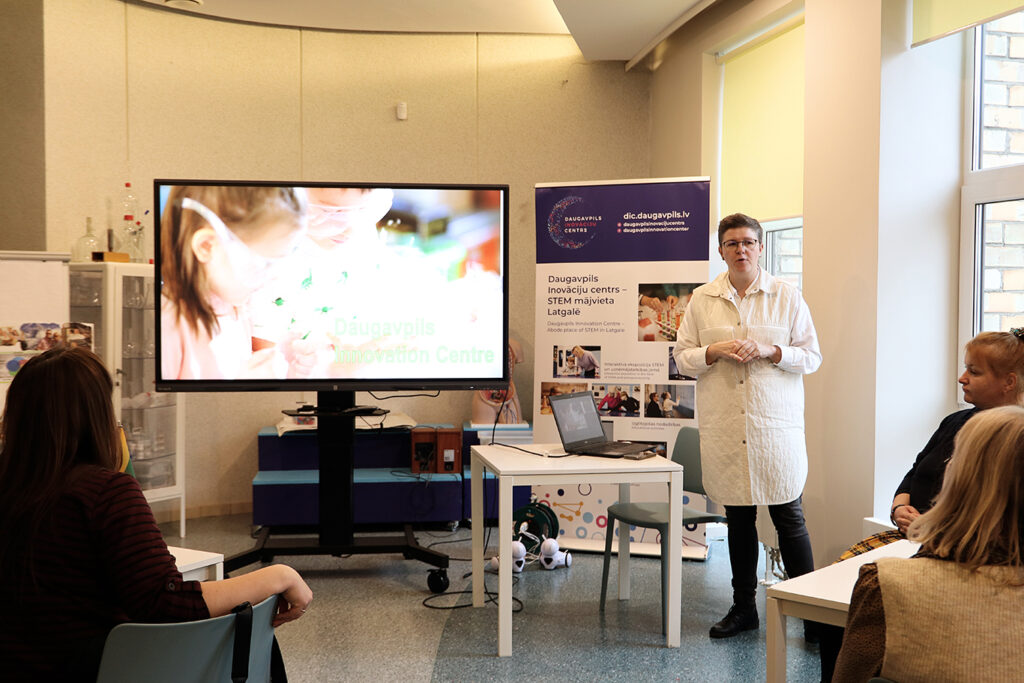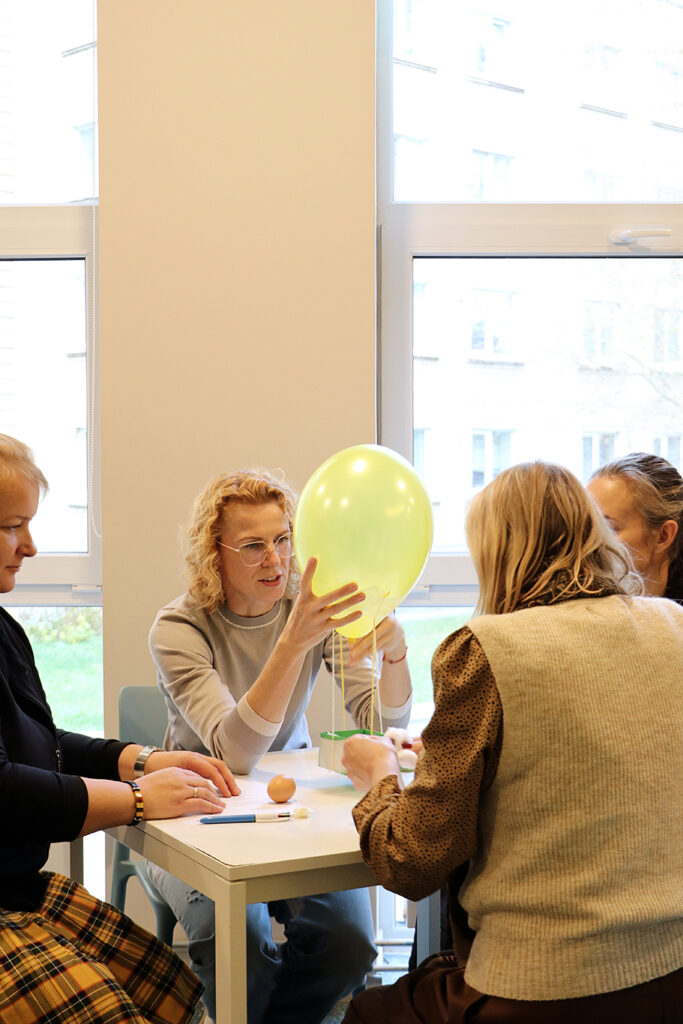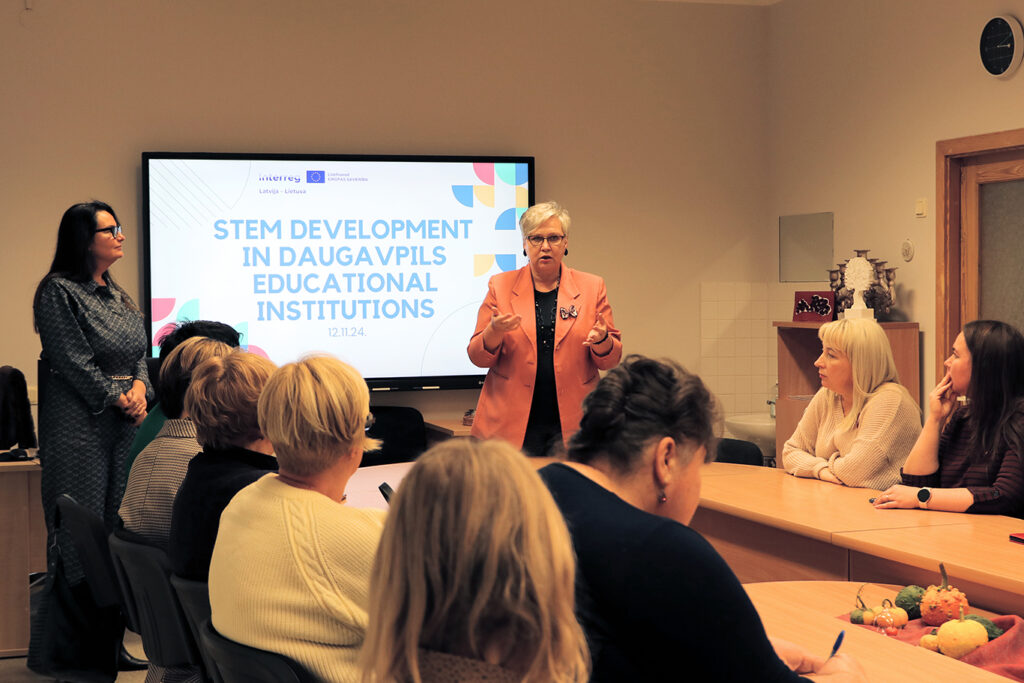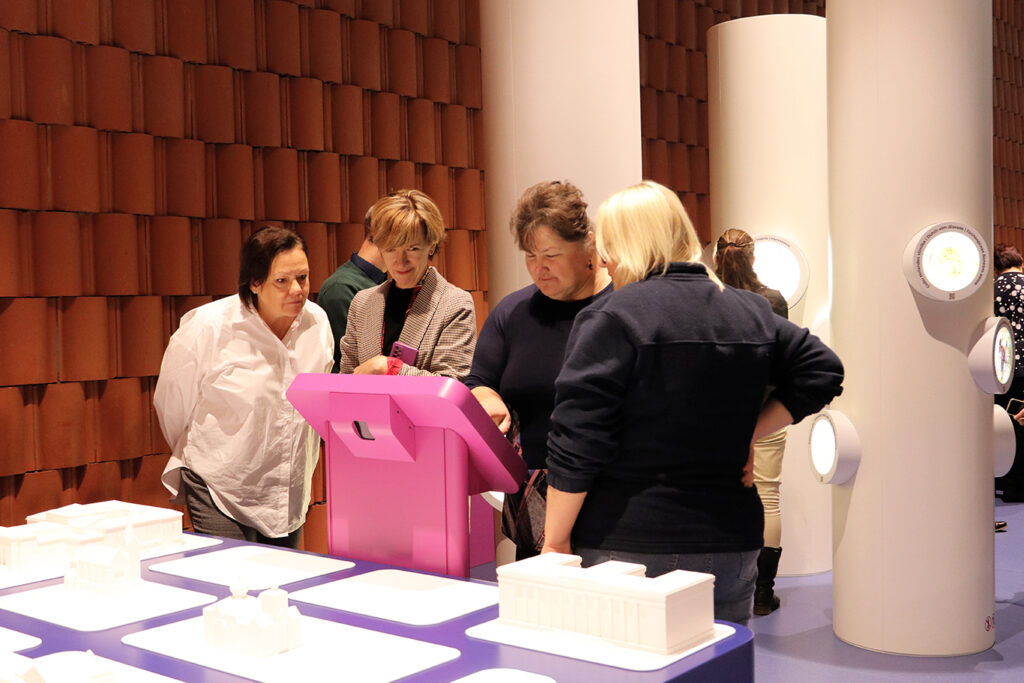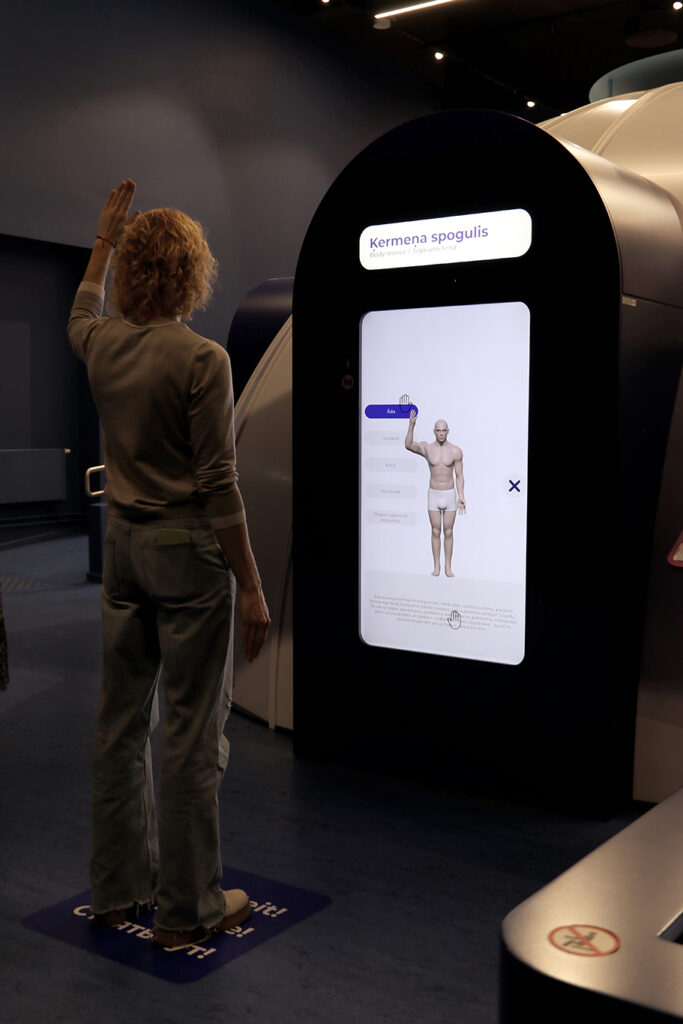Inspiring ideas and practical examples for STEAM integration in non-formal education marked the conclusion of experience-sharing visits for participating municipalities and educators in Daugavpils and Bauska, which took place in October and November as part of the project “ The foundation of future skills – knowledge and capacity in the field of STEAM” (fit4future).
In today’s world, with technology evolving faster than ever, a deeper understanding of STEAM is becoming increasingly important. Non-formal education provides children and young people with the opportunity to explore the world of science, technology, engineering, art, and mathematics in a fun and engaging way, fostering their interest in careers in these fields.
To strengthen the capacity of educators and promote better cooperation, project partners, along with educators from Jelgava, Bauska, Dobele, and Jēkabpils regions, as well as Pakruojis and Birzai, traveled to Daugavpils to gather new ideas on how to improve and diversify STEAM offerings in their educational institutions.
The creative and active study visit began at the Daugavpils Innovation Center, where participants explored the exhibitions with an engaging guide, not only getting acquainted with the center’s offerings but also testing their knowledge and technical skills. The center’s methodologist shared experiences about successful collaborative projects with schools, municipal services (police and firefighters), and local businesses. These projects have resulted in interesting workshops for children and families, as well as competitions that attract young people’s attention and foster their interest in STEAM.
Later in the day, the participants visited the Daugavpils Children and Youth Center “Jaunība”, which boasts a wide range of non-formal education offerings, including in STEAM. The center’s director introduced the educators to the center’s operating principles, emphasizing support for large and low-income families, as well as children with special needs. The visit sparked stimulating discussions on topical issues such as attracting funding and addressing teacher shortages, where the center’s management shared their experience of collaborating with students and mentors to prepare the next generation of non-formal education teachers.
It is worth noting that the activities initiated by the center’s educators are a successful example of full-fledged STEAM integration in non-formal education. For instance, in October, the technical modeling club implemented the project “Symbols of Strength for Latvia”. During the project, students visited the library to improve their knowledge of Latvian symbols and later cut them out of plywood, thus combining art and technology in their activities.
At the end of the visit, the participants were welcomed by the Latgale Central Library’s Family Digital Activity Center – an innovative space for children and families where they can spend their free time not only reading informative literature and playing board games but also working with robotics and other technological materials. The educators themselves had the opportunity to try out the center’s wide range of activities.
At the end of October, a similar experience-sharing visit took place in Bauska, where educators from Zemgale and Northern Lithuania visited the Bauska Children and Youth Center. Experienced educators from the center shared their expertise on STEAM methodology and its practical application in various non-formal educational programs. During the visit, the newly renovated Bauska 2nd Secondary School was also visited, where a teacher shared experiences on integrating STEAM into the learning process.
It should be emphasised that such exchanges of experience not only provide valuable insights into various STEAM integration approaches but also promote cooperation between educators, generate new ideas, and motivate further work. The next experience-sharing visits within the project are planned in Lithuania.


